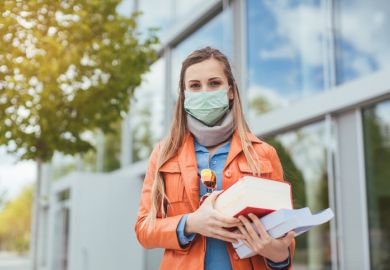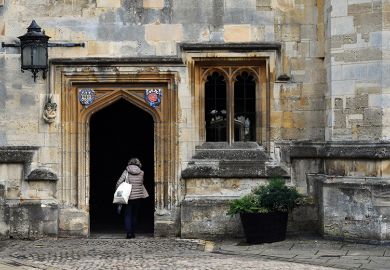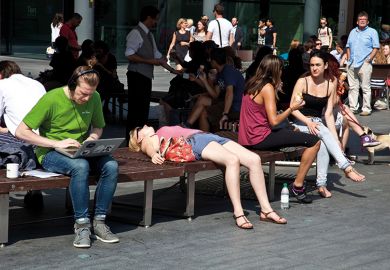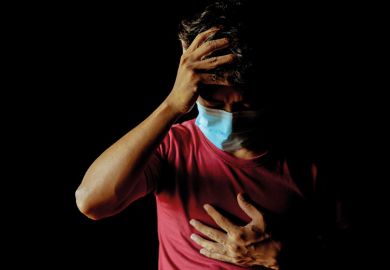English universities should continue to deliver face-to-face teaching despite mounting concern over the Omicron variant of Covid-19, the Department for Education has said.
In line with the rest of the working population, higher education staff should “work from home if possible” from 13 December to slow the spread of the virus, according to new government guidance.
However, the document says that ministers were “prioritising keeping education settings open”.
“We therefore expect education settings to remain open for face-to-face teaching as planned,” the guidance says. “Teaching and learning should not be moved online as a result of the work from home guidance and staff can continue to attend work as necessary to deliver this.”
The document says that ministers “expect the majority of staff would attend settings, to maintain face-to-face education for all students as far as possible”, including lecturers, researchers, technicians and staff delivering “essential student support services”, such as librarians and mental health advisers.
Administrative staff who are not involved in the delivery of face-to-face teaching should work from home where possible, the DfE says.
The guidance adds that face coverings should be worn by students, staff and visitors in corridors and communal spaces on campuses.
“Providers may also want to consider adopting the use of face coverings in workshops, laboratories, offices, libraries, teaching rooms and lecture halls, especially where there is poor ventilation,” the document says.
Many UK universities have been delivering large lectures online during the autumn term due to concerns over Covid-19, but most smaller group teaching has been taking place in person.
On Covid-19 testing, the DfE recommends that students and staff should continue to use lateral flow tests twice weekly at home, and that students should take tests before travelling home for Christmas and then before returning in the new year.
Providers “are strongly encouraged to ask visitors to take a [lateral flow] test before entering the setting”, the document adds.
A Times Higher Education survey published in September found that 53 per cent of respondents did not feel safe returning to face-to-face teaching or on-campus working while coronavirus case numbers remained high. Only 28 per cent of respondents said that they did feel safe, with 19 per cent unsure.






